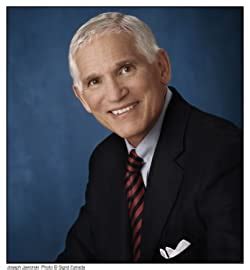A Quote by Milton Friedman
Economists may not know how to run the economy, but they know how to create shortages or gluts simply by regulating prices below the market, or artificially supporting them from above.
Related Quotes
Economists may not know much. But we know one thing very well: how to produce surpluses and shortages. Do you want a surplus? Have the government legislate a minimum price that is above the price that would otherwise prevail. That is what we have done at one time or another to produce surpluses of wheat, of sugar, of butter, of many other commodities. Do you want a shortage? Have the government legislate a maximum price that is below the price that would otherwise prevail.
You cannot stay on the summit forever; you have to come down... So why bother in the first place? Just this: What is above knows what is below, but what is below does not know what is above. In climbing, take careful note of the difficulties along your way; for as you go up , you can observe them. Coming down, you will no longer see them, but you will know they are there if you have observed them well.
If in the human economy, a squash in the field is worth more than a bushel of soil, that does not mean that food is more valuable than soil; it means simply that we do not know how to value the soil. In its complexity and its potential longevity, the soil exceeds our comprehension; we do not know how to place a just market value on it, and we will never learn how. Its value is inestimable; we must value it, beyond whatever price we put on it, by respecting it.
No matter how well-born, how intelligent, how highly educated, how virtuous, how rich, how refined, the women of to-day constitutea political class below that of every man, no matter how base-born, how stupid, how ignorant, how vicious, how poverty-stricken, how brutal. The pauper in the almshouse may vote; the lady who devotes her philanthropic thought to making that almshouse habitable, may not. The tramp who begs cold victuals in the kitchen may vote; the heiress who feeds him and endows universities may not.
We know what we have to do. And we know how to do it. If we fail to convert our self-destructing economy into one that is environmentally sustainable, future generations will be overwhelmed by environmental degradation and social disintegration. Simply stated, if our generation does not turn things around, our children may not have the option of doing so.
TODD: The history of the world, my love -- LOVETT: Save a lot of graves, Do a lot of relatives favors! TODD: Is those below serving those up above! LOVETT: Ev'rybody shaves, So there should be plenty of flavors! TODD: How gratifying for once to know BOTH: That those above will serve those down below!
Publishing is the only industry I can think of where most of the employees spend most of their time stating with great self-assurance that they don't know how to do their jobs. "I don't know how to sell this," they explain, frowning, as though it's your fault. "I don't know how to package this. I don't know what the market is for this book. I don't know how we're going to draw attention to this." In most occupations, people try to hide their incompetence; only in publishing is it flaunted as though it were the chief qualification for the job.



































